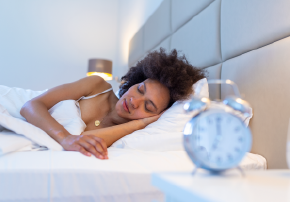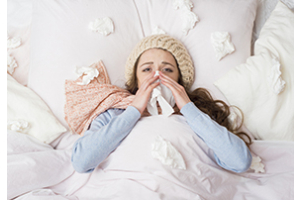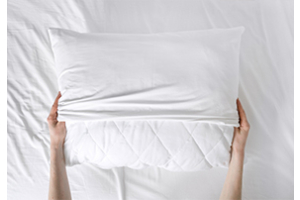Is Sleeping Late Bad for Your Health?

Is Sleeping Late Bad For Your Health?
Staying up late every night is not necessarily a bad thing. You may just be a late sleeper, a so-called night owl, whose natural body clock prefers to sleep and awake later. What matters, regardless of your preferred bedtime, is that you get the right amount of deep, quality sleep. For most of us, that means around 7-9 hours of sleep each night.
But what happens if we start sleeping considerably later than our usual bedtime? For some reason, we just can't seem to get back to our regular bedtime hour. Sleep scientist, Dr Dale Rae, takes us through some of the possible causes and solutions to get you back on track.
What causes delayed sleep?
“There can be several reasons why we suddenly find ourselves in a nightly habit of sleeping later than we usually do,” notes Dr Rae. “For instance, there might have been a prolonged work project that needed extra attention every night. With the project completed, it may be difficult suddenly to revert to a normal bedtime hour.”
“Work or personal pressures which bring on anxiety can also result in compromised sleep where you’re not managing to sleep until you really are exhausted. At different times of life, like teenage years, there can also be a tendency to stay up later.” A teen’s circadian rhythms change and become more evening-orientated, which causes a shift in a teenager’s body clock to one or two hours later. The challenge, of course, is to get up at the same time every morning for school.
Does delayed sleep affect our health?
“If you’re not getting the right amount of sleep each night because you delay your bedtime, but still wake up at the same time, then yes, this will eventually impact your daily functioning,” says Dr Rae. “It’s called sleep deprivation, which eventually starts building up ‘sleep debt’. It’s important to take back control of your usual sleep routine as soon as possible. Prolonged sleep debt can lead to a weakening of the immune system, as well as cognitive sluggishness among other concerns. Both your physical and mental well-being are essentially at risk.”
How can I reset my sleep?
Make a concerted, routine effort to manage your sleep hygiene. By this we mean eating healthily, minimising caffeine intake in the afternoon, limiting alcohol consumption closer to bedtime, getting moderate exercise and natural sun exposure, as well as purposefully calming down towards your usual bedtime. Avoid exercising or eating too close to bedtime. Put aside devices one hour before bed. Switch off the TV. Take quiet time to relax both mind and body. Afford yourself a pre-bedtime routine that prepares you for deep, quality sleep.
You may find it difficult to re-adjust to your usual bedtime in one evening. If you struggle, try aiming towards an earlier bedtime by a half hour each night and slowly ease yourself back into your sleep sweet spot.
Dr Rae’s Sleep Science team consults across the country with people who struggle with managing regular, quality sleep. Learn more at www.sleepscience.co.za and consider an online consultation. Sleep is not to be taken lightly. Let the research and experience of the Sleep Science team guide you back to a full, restorative night’s rest. Every night.
Better late than never. Come to Dial•a•Bed.
A vital part of rejuvenating beauty sleep each night is making sure you’re sleeping on your best mattress. Getting less sleep than you need could easily be a matter of upgrading your mattress. If it’s been more than 8 years since you tried out the latest in mattress design and technology, take a look through www.dialabed.co.za. Firm, medium or plush – foam or spring – double, queen or king size – these are all considerations that need reviewing as we get older. It’s never too late to put your sleep health first. #SleepForLife.
TAKE CARE: Lifestyle recommendation is not medical advice. Always consult your healthcare professional should you be experiencing prolonged sleep difficulties or related health issues.






